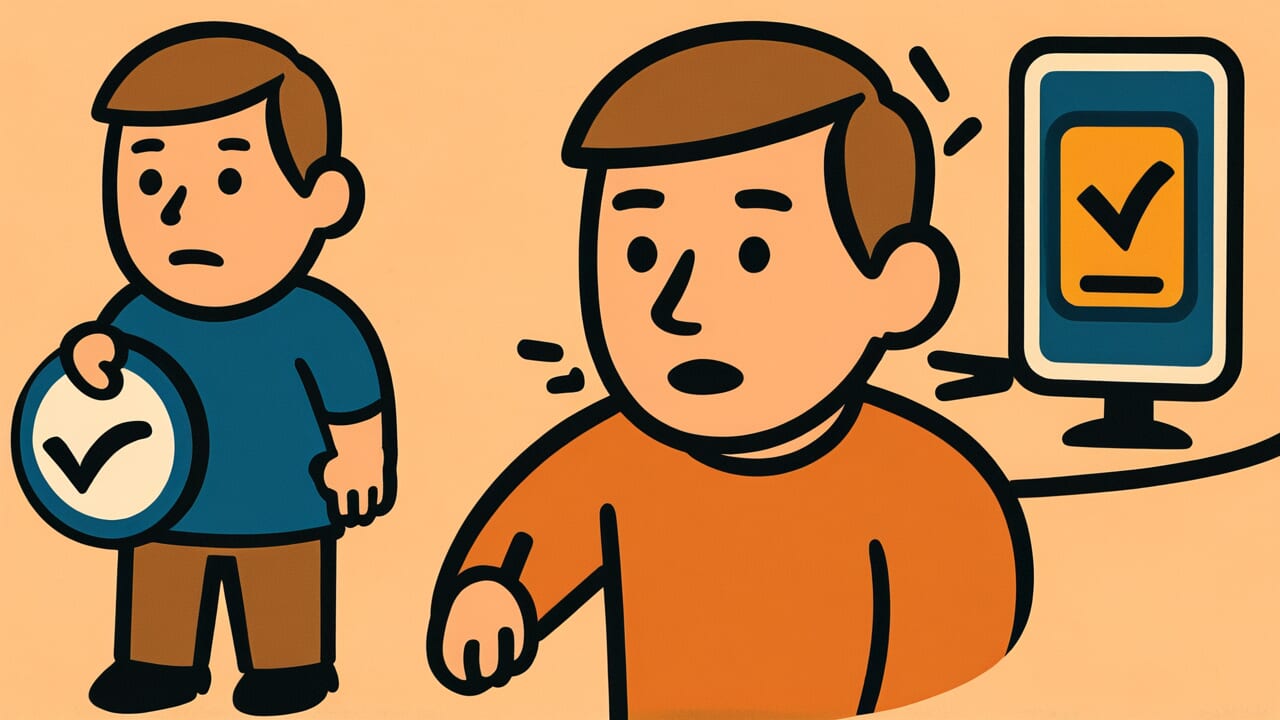How to Read “Don’t lose rather than gain”
toku wo toru yori son suru na
Meaning of “Don’t lose rather than gain”
This proverb teaches the importance of acting carefully to avoid losses rather than actively pursuing profits.
Going after big profits looks attractive, but it comes with the risk of failure. On the other hand, if you act carefully to avoid losses, you can protect what you have even if you don’t gain much.
This is especially true in business and managing money. The proverb warns us to prioritize defense over offense.
This thinking still works today in investing, business, and daily decisions. Before making risky choices, carefully consider the possibility of loss.
Focus on avoiding failure rather than chasing flashy success. This steady approach leads to stable results in the long run.
Origin and Etymology
The exact source of this proverb is unknown. It likely spread among common people during the Edo period as practical life wisdom.
The structure contrasts two opposite concepts: “gaining” and “losing.” What’s interesting is that it doesn’t simply say “avoid loss over gain.”
Instead, it compares loss avoidance with the active pursuit of profit. This reflects merchant culture of that time, which valued both seeking profit and protecting business steadily.
Edo period merchant families treasured the word “shimatsu.” This meant avoiding waste and protecting wealth carefully.
Rather than failing while chasing big profits, avoiding losses steadily was the secret to keeping a family business running. This approach allowed merchants to continue for generations.
This proverb also contains insights from behavioral economics. People feel the pain of losing more strongly than the joy of gaining.
Our ancestors understood this psychology through experience. They taught the importance of avoiding loss first. This wisdom grew naturally in Japanese culture, which sees carefulness as a virtue.
Usage Examples
- Following “Don’t lose rather than gain,” I decided to pass on this investment opportunity
- He may seem plain, but he steadily increases his savings with the spirit of “Don’t lose rather than gain”
Universal Wisdom
Humans have a strange quality. The regret of losing 1,000 yen cuts deeper into our hearts than the joy of gaining 1,000 yen.
This proverb reflects the wisdom of ancestors who understood this human nature.
We admire success stories. Quick fortunes, dramatic comebacks, glorious victories. But in real life, small failures accumulated affect us far more than dramatic successes.
One big loss can instantly destroy what took years to build.
This proverb has been passed down because it addresses a fundamental human anxiety. We instinctively fear losing more than we desire gaining.
That fear was necessary for survival. Losing food meant starvation, losing shelter meant freezing, losing companions meant isolation. Loss directly threatened life itself.
Modern society has fewer survival threats, but our fear of loss remains unchanged. With more choices available, deciding what to protect and what to give up has become harder.
That’s why we must first protect what needs protecting. Then, if we have room, we can seek gains. Not reversing this order creates a stable foundation for life.
When AI Hears This
The human brain doesn’t treat gains and losses equally. According to prospect theory in behavioral economics, comparing the joy of gaining 10,000 yen with the sadness of losing 10,000 yen shows something interesting.
The pain of loss feels about 2.5 times stronger. To compensate for losing 10,000 yen, you need a gain of 25,000 yen.
This asymmetry is rooted in the brain’s survival strategy. For human ancestors, not losing existing food mattered more for survival than gaining a bit more.
Individuals with stronger loss-avoidance instincts survived better. Our brains have built-in circuits that extremely dislike losses.
What’s interesting is how this proverb reverses priorities. Normally you’d say positively “gain rather than lose.” But it deliberately puts loss avoidance first.
This insight recognizes that human judgment prioritizes minimizing loss over maximizing profit. It sees through the brain’s essential nature.
In investing, the psychology of “not being able to cut losses” causes problems. But this proverb’s wisdom differs.
By emphasizing choices that avoid losses from the start, it prevents situations where you suffer 2.5 times the pain later. This is an extremely rational strategy based on understanding brain characteristics.
Lessons for Today
Modern society overflows with success stories. Social media displays glamorous achievements. Business books promise big success.
But this proverb gives us a different perspective.
First, protect what you have now. Health, relationships, trust, stable income. Once you lose these, recovering them takes many times more effort.
Before jumping at new opportunities, calmly consider the risk of losing what you have.
This doesn’t recommend a passive lifestyle. Rather, having a solid foundation lets you challenge new things with confidence.
Savings let you try changing jobs. Trust lets you recover from failure. Health lets you start over repeatedly.
What should you protect in your life right now? Cherish it while moving forward little by little.
That steady progress may ultimately take you the farthest. It’s not flashy, but it builds a solid life.



Comments